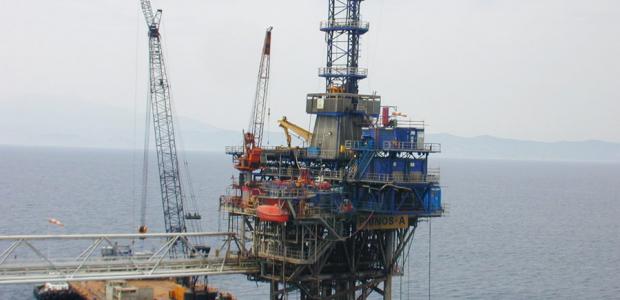Intended investments for the transformation of the “South Kavala” depleted gas deposit in the country’s north into an underground gas storage facility, which would help bolster the country’s energy security, and development of the spot’s “Kappa” platform, have remained stagnant with no signs of any progress.
A recent enquriry by the administration at Energean, holder of a license for the deposit that expires on November 23, to the Production Reconstruction, Environment and Energy Minister Panagiotis Lafazanis and TAIPED, the State Privatization Fund, on whether a further one-year license extension may be expected, has remained unanswered. If not, the state will need to take on the facility’s maintenance duties once the current license expires.
Last November, Energean was granted a one-year extension for the deposit as TAIPED deemed preparations to reoffer the facility through a tender would require a considerable period to organize. The move, made under the country’s previous administration, spared the state of having to take on the deposit’s considerable maintenance costs until a new investor is found.
Despite the license extension to Energean, TAIPED, in an absurd move, recently informed the European Commission that the specific deposit currently belongs to the Greek State, before Energean reacted by reminding that the license it holds is valid until November 23 of this year.
This latest mix-up only adds to the sense of hopelessness concerning this project, which has remained at the discussion stage for the past five years.
The unfavorable results of a study on the deposit conducted last year by Finnish company Poyry, on behalf of TAIPED, may explain why the state has hesitated to proceed with a tender. The study noted that the depleted gas deposit’s transformation into an underground storage facility would require an investment of between 300 million and 400 million euros. It added that the subdued revenues that could be expected do not make the project commercially viable, while concluding a surcharge would need to be imposed on consumer bills to cover part of the investment’s cost.
The Kavala deposit has been classified as a project of common interest (PCI) by the European Commission, a status enabling favorable financing. However, should the project remain stagnant, it is likely to be removed from the PCI list.





